- Home
- Kay Hooper
Hidden Salem Page 2
Hidden Salem Read online
Page 2
Maybe he knew she would dream. Nellie didn’t have the sort of connection with Leo to be sure what he knew or didn’t know except when it was obvious. It stormed when she was very upset, very nervous, or very anxious. After five years with her he knew that and tended to stick even closer than usual.
He knew they were on a trip, and normally Leo enjoyed travel. Exploring new places with new things to smell was fun; that was the sense she got from him. But not this time. He had been uncharacteristically subdued all the way here.
Then again, maybe it was just this motel.
She had spent the last two nights at this very unsettling and weirdly familiar roadside motel about ten miles away from Salem, trying to get up her nerve to actually drive into town. It had been the closest lodging she’d been able to find not actually in the town—the only lodging, really, within at least thirty miles, which was weird.
No weirder than the rest of this, she supposed, but . . .
Weird.
It was almost as if the town wanted to be hidden.
Almost.
Her car’s GPS system hadn’t had a clue, and neither had the maps app on her cell, so she’d had to rely on some pretty old, many-folded maps of the kind still sold at most gas stations. And even then she’d found herself stopping often to ask where she was on them (since roads and highways had been added everywhere since the maps had been printed) and how to find Salem. The directions she had followed had consisted entirely of physical landmarks such as an ancient tumbledown barn just off the highway, a lone pancake house that appeared to have gone out of business a considerable time previously, and, at the off-ramp itself, what looked like a truckers’ gas station and café actually called Mama’s Good Food.
Mama’s cooking didn’t appear to be a very strong draw. Nellie hadn’t seen a single truck or, for that matter, a car at the café, even though a blinking red neon sign in the window, a few dim places in its tubing adding to the weirdness, had declared the place to be open.
It was hardly inviting. Nellie hadn’t been tempted to stop.
Miles off the highway ramp she had been somewhat reassured to discover that her interim destination, recommended by a helpful man at a gas station several hours before, was neat and in good repair. The neon sign indicating the Raven Lodge had not been missing any of its illumination, blue letters shining brightly, functioning as the beacon it was no doubt designed to be to draw in weary travelers for a brief respite from their adventures in the middle of godforsaken nowhere.
A single crow had been perched on the sign and had watched Nellie’s arrival with bright eyes. Weirdly appropriate, even though it was a crow and not a raven. And she didn’t even know if she could have explained the difference. Just that she knew this was a crow, because she saw them all the time.
She had deliberately avoided looking at it as she checked in and parked near her room, carrying in her bags herself. And she hadn’t looked out to see if the crow lingered.
They almost never did once she got inside.
Almost never.
Since then, she had mostly stayed inside. A couple of other guests had come and gone for a single night, which had been reassuring, but not very; Nellie had seen them only in passing, and they’d had the glazed-eyed look of exhausted travelers just looking for a place to rest for a few hours before moving on in their journey from somewhere to somewhere else.
It was a lonely place. Still, Nellie really wasn’t all that worried about anyone bothering her. She had her gun. And Leo. Not many people were willing to mess with a ninety-pound Pit bull.
Or even a little woman holding a gun with very expert ease.
No, the Raven Lodge, despite its somewhat eerie isolation, was to all appearances safe enough, neatly kept and maintained as though someone cared; she’d seen a gardener working, and there were at least two maids who took care of the rooms.
So. It was a place to pause for a day or three and think about this, which was why she had stopped instead of pushing on when she was so close. To think. To walk Leo—always within sight of the motel—and to ask herself again and again if she was making the biggest mistake of her life.
A place to pause and consider—that’s what she had needed. And never mind that there was always a crow visible somewhere when she took Leo out. Sometimes more than one, always watching her with their small, black, eerily intelligent eyes.
She ignored them.
Because this was a good place to stop and think, without distractions, feathered or otherwise.
It had this fairly comfortable bed, after all, complete with a snowy white duvet cover freshly bleached instead of the mystery bedspread of many hotels and motels made infamous by unpleasant stains hidden by dark, busy floral prints. There were plenty of good pillows and warm blankets, plenty of hot water in the shower, and plenty of towels. The heating system worked efficiently without sounding like a jet taking off just outside the window. Both the satellite TV on a seemingly brand-new flat-screen and the Wi-Fi password she’d been given at check-in for her laptop worked with no problem at all as long as she remembered not to rest her fingers or hands on the laptop for any longer than necessary.
They tended to go dead on her if she wasn’t careful. Even if they were plugged into an electrical outlet. Even if she wore her gloves.
There was no food service or restaurant on-site or nearby, but there were vending machines in a central niche where the ice machine lived, and a fair selection of those, even providing sandwiches and microwavable soup and other meals. She had both a coffeemaker and a microwave in her room. And, anyway, it beat driving all the way back to Mama’s.
So a good place to pause. To think.
But she had still dreamed the first night here. And last night. The same horrible, inexplicable dream that woke her with a scream of terror tangled in her throat, locked behind her gritted teeth. And so tonight it was storming, the rumble of thunder rolling and rolling and rolling as if seeking a particular path through these old mountains and valleys. Or a particular thing.
Hunting.
Hunting her.
Dumb. Dumb thought. Turn out the lights, the TV, listen to the storm—and imagine it’s hunting you. Oh, yeah, that’ll lead to a restful night.
Leo licked her hand again, and Nellie murmured to him soothingly, then closed her eyes in determination. The storm was not hunting her. This little motel was perfectly ordinary and perfectly safe, and she could sleep easily.
She could.
She told herself that over and over.
And she almost believed herself.
* * *
—
IT WAS NEVER the same, Nellie’s dream—and yet it was. The same terror and shame and confusion. The same overwhelming sense that this wasn’t her, that she was watching someone else do these inexplicable, sickening, unspeakable things.
It was always in the woods, dense woods like those that surrounded this isolated motel. There was always a big fire, a bonfire, with shadowy figures she could never quite make out throwing more branches onto the fire to keep it burning high and hot.
She could never tell if it was a mist or smoke that made it difficult for her to see clearly, but she never could. The brightness of the bonfire, the shifting human shapes of shadows. Smoke or mist swirling, distorting everything.
There was always chanting. Words she could never make out, or maybe a language she didn’t know. Or maybe she just didn’t want to understand what they were saying, because something inside her, inside the sane her, didn’t want to understand. Smells she didn’t want to identify because . . . because. Things she didn’t want to look at, to see.
Even glimpses were bad enough. Because she thought there was a body lying prone on a big, flat rock, blood dripping, shining in the firelight, and it didn’t even look human anymore.
Who had done that? Why?
They were all a
round her, moving, perhaps dancing as they chanted. In the shadows mostly, but occasionally a flicker of the bonfire would catch the gleam of eyes or the wet maw of an open mouth chanting.
Chanting . . . something. Slowly at first, softly. Then louder. Faster. Frenzied.
And then there was her. As if she stood back and watched, she could see herself. Or someone that appeared to be her, which was what she desperately hoped was the truth. Not her. Just someone who looked like her. Dressed in some filmy white dress with layers and bits that fluttered as she danced and whirled. Barefoot, her hair loose and whipping about. Layered or not, the dress was nearly transparent, more obviously so when the layers and bits lifted and shifted with her movements, and it was utterly clear she was naked underneath it.
Naked. Aroused.
It made her want to turn away, to writhe in shame and disgust. Because she, that other her, that stranger, was wild, pagan, and dancing with total abandon, out of control, growing more frenzied as the chanting grew more frenzied. A shadowy partner danced with her near the bonfire, a partner who was clearly male and clearly aroused as well, because he was naked.
She couldn’t see his face because he was wearing some kind of mask, but the firelight glinted off sweat-slick muscled flesh as he danced with a grace that was riveting.
That was what Nellie hated, that she couldn’t look away, couldn’t turn away and run from this. She stood frozen, somehow apart from what was happening or wanting to be, staring, watching herself—watching that stranger that looked like her—behave in a way she never had, never could, in some kind of ceremony or ritual or, hell, just insanity, and what she felt even over the disgust and shame and bewilderment was this awful certainty of . . . inevitability.
It wasn’t a dream. Wasn’t a nightmare. It was something else.
It was something real.
And it terrified her.
The chanting grew louder, the shadows in the background moved with more frenzy, she moved with more frenzy, and then she started taking off the filmy white dress, the sheer layers of it falling away from her, her sweating face twisted in an expression of lust, and the naked man was reaching for her, his hands grasping—
And she woke with a cry, sitting up in bed, Leo whining anxiously beside her.
She wrapped her arms around him and held on to his warmth and strength, his reality, knowing she was shaking and frightened. She could still hear the thunder, softer now as the storm wandered away, its task finished.
It had found her.
* * *
—
OUTSIDE THE ODD little motel, the crows gathered, as they had every night since Nellie had arrived. Oddly silent for birds that weren’t usually.
Two. Four. Ten. Finally a dozen in all. A couple perched on the motel’s sign. Others perched on tree branches, a few on the old three-rail fence that fronted the motel’s property and was supposed to be decorative.
Some of the crows looked up as thunder rumbled in the distance, but their attention never strayed far or for long from the motel room with the curtains drawn.
The one with her inside.
They were silent, the crows. Wings flapped occasionally, but no normally raucous caw of sound escaped any of them.
They just watched. And waited.
TWO
Geneva forced herself to spend the rest of the day snapping pictures around town and talking pleasantly to people, as she had been doing for the last two weeks. Building solidly on the cover that she was here to photograph the often genuinely stunning views of the landscape, as well as the historical architecture, for a planned book of her wandering photographic “journey” of the Southern Appalachians.
One small town at a time.
She had lunch at one of the cafés, indoors because it was cold. She hadn’t noticed it so much that morning, but as the day wore on she certainly did.
As she always did, she cautiously opened up her mind now and then, hardly more than sending out a seeking tendril of telepathic energy to probe her surroundings. And, as had so often happened in the last two weeks, what she sensed was . . . unusual. Sometimes there was only static in her head, a faint crackling like between stations on a radio. Other times she was able to pick up a thought or two from the people around her. The sort of normal thoughts most people had, about what was going on in their lives at the moment, large and small worries or frustrations and sometimes contentment or unclouded happiness.
And sometimes—often—nothing; thoughts hidden behind mental or emotional walls the SCU had found more common in small towns, where everybody knowing your business tended in some people to result in protective barriers erected unconsciously. Though usually not quite so . . . solid.
In any case, she sensed virtually nothing that helped her, and she was very conscious of the nagging feeling that the static, while baffling, was also important, and that maybe she should drive her rental a safe distance from town, as she had for her only check-in so far, and find a landline phone to contact Bishop.
But Geneva was stubborn. It was her job to figure this shit out, and she intended to do just that.
The day seemed to crawl by. She had supper out as well as lunch, partly because she was hungry and partly because she wanted to try again to pick up any of the militia chatter—making other cautious telepathic efforts, though so far she hadn’t been able to read a single one she’d identified as militia. And they were not, she’d quickly discovered, talkative to strangers. At all. Nor did they seem especially chatty to townsfolk, though always pleasant.
They were a lot more like a solidly disciplined law enforcement or military group than most of the militias she’d encountered, and though it was a bit reassuring to see no outward signs of fanaticism such as shaved heads or ugly tattoos, she had not been able to find out anything about their beliefs and motives. Other than the obvious one of keeping order in Salem.
She had mentally tagged a couple dozen citizens of Salem as belonging to the militia, almost entirely from actions, behavior, and the very few snippets of conversation she’d overheard one way or another. There were a few women but mostly men, and she had a strong feeling she had yet to encounter whoever was in charge of what was in effect local law enforcement.
She really needed to find out who was in charge. In two weeks she had overheard only two names that sounded as if they were held in a great deal of respect, and she had neither met nor encountered either man yet. Finn had been one name, Duncan another. Finn seemed to be high up in the day-to-day operations of the militia—she thought, since she’d caught quite a few snippets of conversation that included the phrases “Finn said,” or “Finn wants us to” . . . whatever.
But she hadn’t been able to find out any real, solid information. She wasn’t even sure which of the families they belonged to, though she had a strong hunch they came from the original five families that had settled this valley and founded the town hundreds of years before.
She was more than usually frustrated by the lack of information, which was why she sent out carefully narrowed seeking tendrils to probe those around her whenever she was in a restaurant or even just walking around town, even though she was also worried her own seeking might be picked up by someone else.
Like the wrong person.
So by now, she was extra-cautious when she reached out, increasingly bothered by the static and the walls. The static because she was afraid it originated somehow in a human source and was getting stronger, which indicated increasing power of some kind, and the walls because she became gradually convinced they were the more rare kind that usually hid psychic ability, active or latent.
She hadn’t recognized another psychic as she’d wandered around the area snapping pictures, but that wasn’t unheard of, even though until now she would have said it was more usual that they tended to recognize each other. She normally did, being a very strong telepath. But in Salem . . . the walls
she sensed were . . . really thick. Like from a lifetime of practice.
The sort of practice born psychics grew up with.
So she shored up her own walls and went about what she had carefully established as her normal daily routine, finally returning to the B and B when it was too late and too dark for her camera to be a good excuse to be out and about. And because it was damned cold. She greeted the ever-present Ms. Payton at the desk of the B and B and cheerfully imparted the information that she had two rolls of film to develop.
Normally she wouldn’t have been so forthcoming while on a case, but in this instance she had made a point of explaining that since she used professional cameras and developed her own film, she’d be setting up a temporary space in her suite for such work and requested that the area not be disturbed by housekeeping.
She was absolutely certain it had been disturbed, searched, at least twice during her stay, and not by any of the maids.
But Geneva had found a place to conceal any damning evidence that she wasn’t what she claimed—even though it had not, until now, been needed. Anything a searcher would have found before today could have done no more than confirm her cover story.
There was a second bathroom in her suite, and it was just large enough for her needs. She borrowed a small table from her sitting room in order to have enough space for her trays, and there was already a pullout line in the shower meant for guests to hang up anything they wished to drip-dry over the bathtub.
Perfect.
She spent the next couple of hours developing the pictures from one roll of film, ignoring the other for the moment. She made two copies of every shot she’d gotten at the dump site. When she was done, she took one set of copies into her sitting room and spread them out on the large coffee table, first turning on several lamps and drawing the drapes across the wide windows and the sliders that led out onto her balcony.
It might have been no more than her usual caution, but Geneva had been disturbed more than once to find herself under observation—by a crow. They were all about the area, so that shouldn’t have bothered her. And if she’d had a different job, maybe it wouldn’t have.

 A Deadly Web
A Deadly Web Raven on the Wing
Raven on the Wing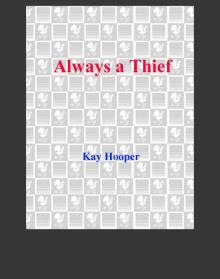 Always a Thief
Always a Thief Star-Crossed Lovers
Star-Crossed Lovers Blood Dreams
Blood Dreams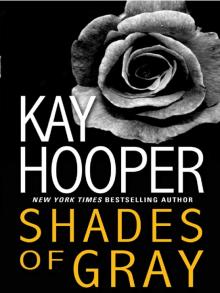 Shades of Gray
Shades of Gray Rebel Waltz
Rebel Waltz Chill of Fear
Chill of Fear Sleeping With Fear
Sleeping With Fear After Caroline
After Caroline Time After Time
Time After Time Haunting Rachel
Haunting Rachel Hunting Fear
Hunting Fear Out of the Shadows
Out of the Shadows Whisper of Evil
Whisper of Evil Blood Sins
Blood Sins Hiding in the Shadows
Hiding in the Shadows C.J.'s Fate C.J.'s Fate C.J.'s Fate
C.J.'s Fate C.J.'s Fate C.J.'s Fate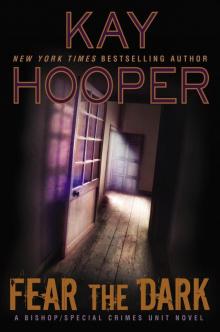 Fear the Dark
Fear the Dark Illegal Possession
Illegal Possession Stealing Shadows
Stealing Shadows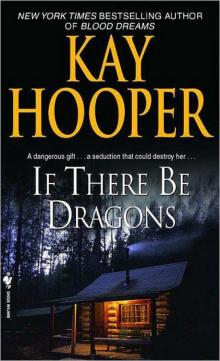 If There Be Dragons
If There Be Dragons Once a Thief
Once a Thief In Serena's Web
In Serena's Web On Wings of Magic on Wings of Magic
On Wings of Magic on Wings of Magic Hostage
Hostage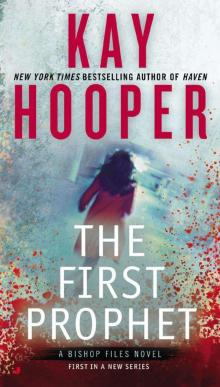 The First Prophet
The First Prophet Through the Looking Glass
Through the Looking Glass Golden Flames
Golden Flames Finding Laura
Finding Laura Haven
Haven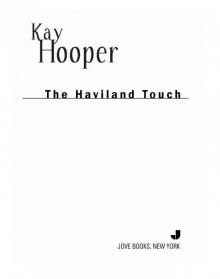 The Haviland Touch
The Haviland Touch The Lady and the Lion
The Lady and the Lion Haunted
Haunted Velvet Ligntning
Velvet Ligntning Blood Ties
Blood Ties Adelaide, the Enchantress
Adelaide, the Enchantress The Matchmaker
The Matchmaker Golden Threads
Golden Threads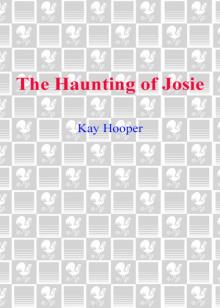 The Haunting of Josie
The Haunting of Josie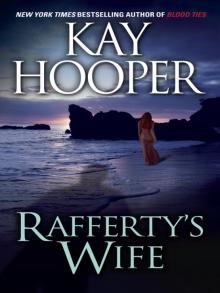 Rafferty's Wife
Rafferty's Wife Amanda
Amanda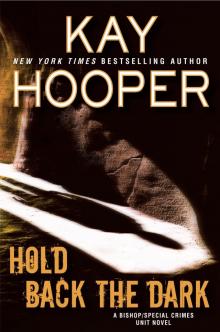 Hold Back the Dark
Hold Back the Dark Sense of Evil
Sense of Evil What Dreams May Come
What Dreams May Come Larger Than Life
Larger Than Life Enemy Mine
Enemy Mine Velvet Lightning
Velvet Lightning The Fall of Lucas Kendrick
The Fall of Lucas Kendrick Aces High
Aces High Captain's Paradise: A Novel
Captain's Paradise: A Novel The Wizard of Seattle
The Wizard of Seattle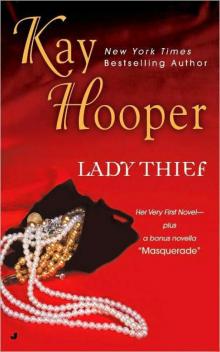 Lady Thief
Lady Thief Summer of the Unicorn
Summer of the Unicorn Outlaw Derek
Outlaw Derek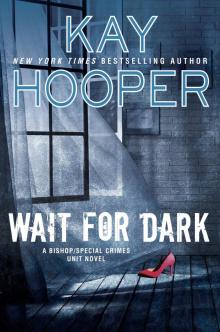 Wait for Dark
Wait for Dark The Glass Shoe
The Glass Shoe It Takes a Thief
It Takes a Thief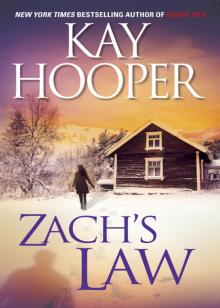 Zach's Law
Zach's Law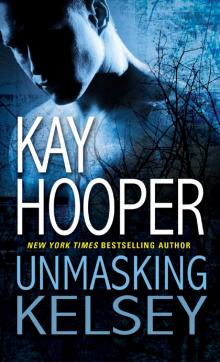 Unmasking Kelsey
Unmasking Kelsey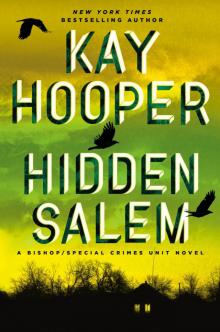 Hidden Salem
Hidden Salem